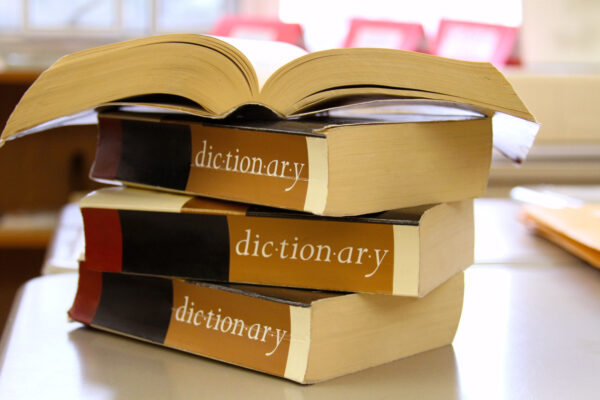The Oxford University Press will publish an African-American English dictionary to highlight enslaved Africans’ contributions to the English language.
A dictionary of African-American English that will shine a light on the history, meaning and significance of African-American language is set to be released in 2025, by Oxford University Press.

Prominent historian, Henry Louis Gates Jr. is the editor-in-chief of the Oxford Dictionary of African American English, which will be produced from a three-year research project by Oxford English Dictionary and Harvard University’s Hutchins Center for African and African American Research. Gates leads the center.
“Every speaker of American English borrows heavily from words invented by African Americans, whether they know it or not,” Gates said.
African-American English is not to be confused with ebonics, which is slang, according to linguist experts. Instead, Oxford defines it as the variety of English spoken by African Americans with its roots in African languages and Creoles.
Gates said words like “goober,” “gumbo,” and “okra” survived the Middle Passage, and American-Africans also influenced words such as “cool,” “crib,” “diss,” “hip” and “dig.”
But the Oxford Dictionary of African American English will not be like an ordinary reference dictionary where readers look up the meanings of words and their uses. Instead, it will be a historical dictionary, which will provide background on the evolution of the words.
Dozens of reference books documenting African-American English and slang have been published in the past. Jazz bandleader and singer Cab Calloway’s publication, “Cab Calloway’s Hepster’s Dictionary,” is considered the first dictionary written by an African- American, according to Oxford. Some general dictionaries, including the Oxford English Dictionary, contain words mainly used by African-Americans.
Renowned linguist and professor John Baugh told Atlanta Black Star that while the dictionary will focus on the “linguistic legacy” of enslaved Africans, he also hopes it will help eliminate some negative stereotypes about African-American vernacular.
“The most important thing is for this dictionary to provide accurate linguistic information about words that are uniquely aligned with the linguistic contributions and usages by slave descendants,” said Baugh, president of the Linguistic Society of America. “But one of the things that I hope is an outcome of that academic enterprise is that it may further dispel some of the stereotypes.”
Baugh said there’s a false perception that people who speak African-American English are unintelligent, but he pointed out it is a compilation of slave-descended dialects, which resulted from isolation and racism.
“They talk like that because their ancestors were enslaved and not given the same opportunities as everybody else that immigrated to the United States on their own,” said Baugh, who also serves as one of the advisors for the Oxford project.
According to the Trans-Atlantic Slave Trade Database, 388,000 Africans survived the Middle Passage and were sent to North America. The Oxford Dictionary of African American English will also highlight some of the words that originated among enslaved Africans who were shipped to the Caribbean under British rule.
Kelly Elizabeth Wright, an experimental sociolinguist and lexicographer, who often researches issues related to race in the U.S., said while enslaved Africans were forcibly stripped of their native languages, what was left of the dialects evolved as they gained access to material knowledge and school systems.
African-American languages have been the main drivers behind the evolution of American English for over 200 years, Wright said. Black language is also at the forefront of popular culture.
“Our words shape the historical and contemporary lexicons of American fashion, music, culinary exploits, favorite dances, several organized religions and protests,” Wright, a member of the Oxford English Dictionary Researcher’s Advisory Guild, told Atlanta Black Star.
“Our words are taken from our mouths and streets and teens and show up quickly on nonBlack TikToks, TV shows and coffee mugs,” she added, citing references like “Yas, Queen” or It’s the (insert object of admiration) for me.”
As the dictionary will illuminate, African-American languages also strongly influence white standardized spoken English. Still, Wright said while the Oxford project will help fight some negative ideologies and give African-American English institutional recognition, “none of that is needed for African-American languages to be real.”
No comments:
Post a Comment